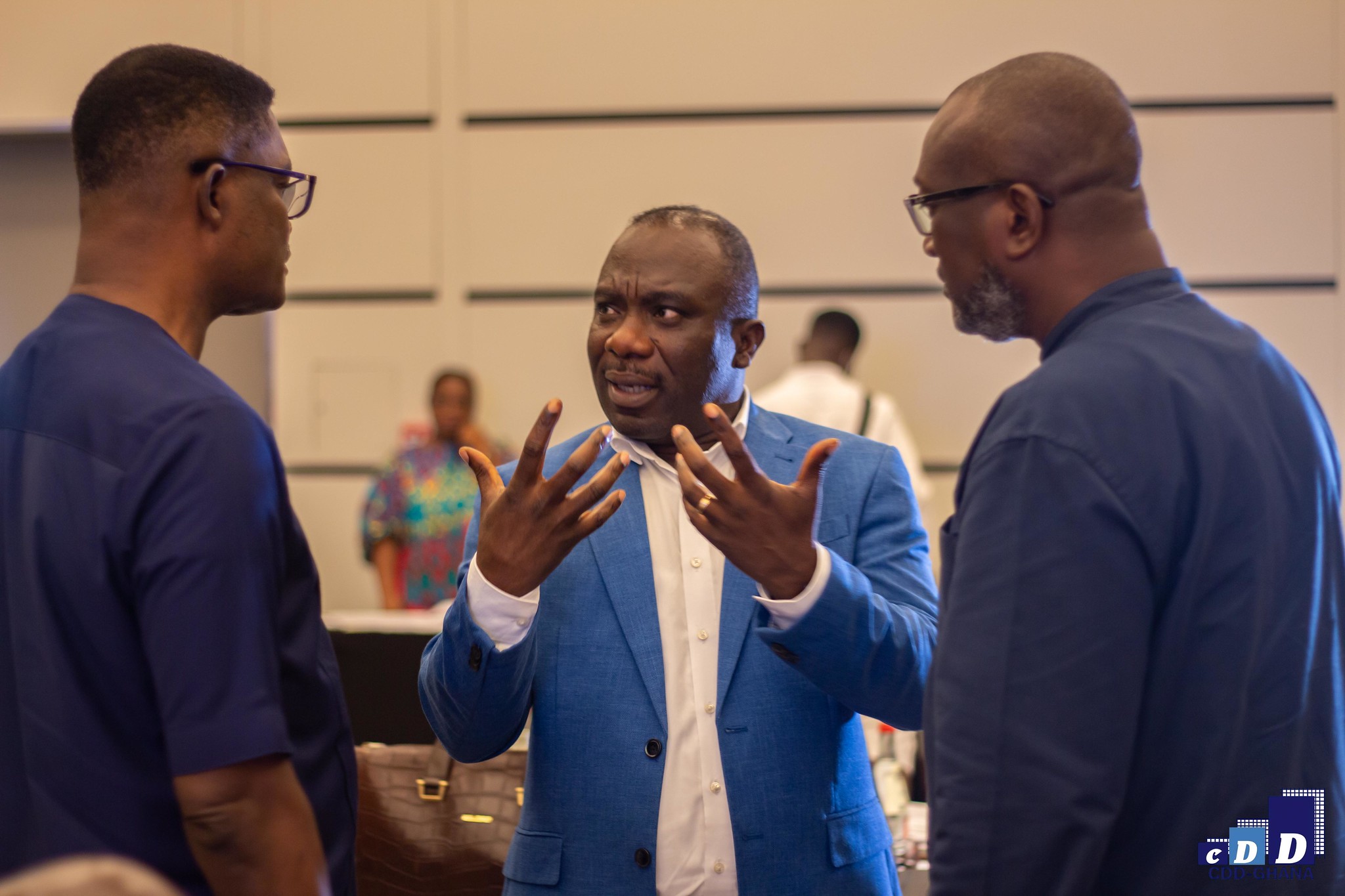
Accra, Ghana//-Participants at a two-day multi-stakeholder conference on local government reforms have called for the introduction of a multiparty system at the country’s local government level.
According to them, the introduction of the system at the various Metropolitan, Municipal and District Assemblies (MMDAs) could lead to inclusive democratic growth and development in the country.
Although some of the participants were not in favour of the proposal, Kwasi Jonah, Senior Research Fellow at IDEG and other proponents argued that when the multiparty system is implemented it would also enhance accountability at the local level.
The Director of Advocacy and Policy Engagement at Ghana Center for Democratic Development (CDD-Ghana), Dr. Kojo Asante, added the adoption of the local government reforms would improve the trust of the Metropolitan, Municipal, and District Chief Executives (MMDCEs).
He noted: “Most Ghanaians (73%) are largely dissatisfied with how MMDAs have dealt with development challenges in their communities over the past 5 years.
In general, Ghanaians rated MMDAs performance in service delivery and revenue mobilisation over the past five years negatively as “very or fairly badly.”
“An overwhelming majority of Ghanaians (9 in 10 respondents) say MMDAs lack financial accountability and efficiency in the usage of the district assembly common fund (and internally generated revenue (IGR); between seven in 10 of Ghanaians believe MMDAs have for the past 5 years performed “very or fairly badly” in promoting participatory governance”.
On his part, Professor H.K Prempeh, the Executive Director of CDD-Ghana, who is in support of deepening local government reforms, is not enthused with the number of MMDAs in the country.
He cited Kenya, which has over 45 million population and a large land size, has about 46 counties, as compared to Ghana’s 261 MMDAs to buttress his argument.
Prof Prempeh therefore called for a more scientific and pragmatic approach for reforming the local government system.
The current local government being operated according to him can be equated to the colonial era, which is long gone, thus a Governor versus District Chief Executive (DCE).

It is time Ghana visits other countries on the continent of Africa to learn from their examples of decentralisation systems, to establish a comparative case.
The multi-stakeholder conference, which welcomed varied ideas on whether the proposed amendment to Article 55 [3] still holds value by the public, was themed-‘Forging Consensus Towards Local Government Reforms in Ghana’.
He noted President Nana Addo Dankwa Akufo-Addo’s effort in seeking to achieve universal participation through his proposed referendum in 2019. However, this was finally aborted after being opposed by several civil society organisations.
The two-day conference event follows a series of engagements that were initiated in 2021 as part of attempts to bring back to the fore the agenda of local government reforms that were truncated by Mr Akufo-Addo “over what was described as a lack of national consensus in the lead up to the referendum on December 17, 2019.”
The Executive Director for IDEG, Dr. Emmanuel Akwetey called for the need for the adoption of decentralized local government, especially to carefully select either a partisan or non-partisan means of voting MMDCEs.
Delivering the keynote address, the Deputy Minister for Local Government, Decentralisation and Rural Development, O.B Amoah, assured Ghanaians that the President, as he was in 2019, is still ready to push for local government reforms depending on the kind of support given to him by Ghanaians.
He stated: “We can draw lessons from the bold step the government took between 2018 and 2019 to take away the power of the President to appoint District Chief Executives and to allow the election of such Chief Executives through the multi-party democratic system.”

The Deputy Minority Chief Whip, Ahmed Ibrahim suggested that as much as the reforms are needed to encourage inclusive governance, there is a need to prolong the tenure of elected officials to at least five or seven years to ensure that electoral expenditures are reduced.
Such a move he advocated would also give maximum tenure to officials to deliver on their mandate.
Some of the suggestions proffered by the participants at the two-day multistakeholder conference organised the CDD-Ghana were the scrapping of unit committees of the MMDAs, repeal Article 55(3) to allow political parties participation in district level elections, among others.
African Eye Report


